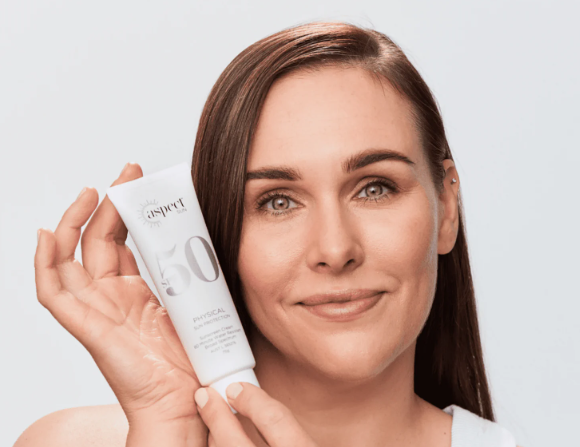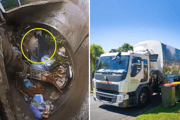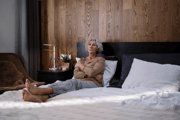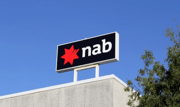
A trip down the sunscreen aisle had turned into a troubling experience for many Australians.
Products that claimed to offer high-level protection were now under intense scrutiny.
Testing revealed shocking failures that left shoppers questioning the safety of their daily sun protection.
Widespread SPF Failures Prompt TGA Investigation
The Therapeutic Goods Administration (TGA) launched a sweeping investigation after consumer advocacy group CHOICE found 16 out of 20 sunscreens failed to meet their advertised SPF 50+ rating.
For older Australians, the findings were particularly worrying given their higher risk of skin cancer.
What began with the Ultra Violette Lean Screen recall soon expanded to multiple products.
Ultra Violette pulled all batches of its Lean Screen SPF50+ from shelves after tests revealed it offered protection closer to SPF 4.
The problem only grew, with Aspect Sun Physical Sun Protection SPF 50+ also withdrawn after inconsistencies in test results.
Ongoing Recalls and Consumer Risks
The TGA confirmed that more products may be added to the recall list in the coming weeks, meaning the scale of the issue was far from settled.
'Given Australia's high incidence of skin cancer, the TGA reiterates that using sunscreen is an important measure to prevent harmful effects of ultraviolet radiation'
This represented a devastating breach of trust for seniors who relied on SPF 50+ claims for their daily walks or gardening routines.
Some products marketed as high protection barely reached SPF 15 in testing, placing users at serious risk.
With skin cancer causing around 2,000 deaths in Australia each year, the consequences of mislabelled sunscreen were grave.
Recalled products to check in your bathroom cabinet
Aspect Sun Physical Sun Protection SPF50+ - Batches: A2450, A2190, A1958, A1492
Aspect Sun Tinted Physical SPF50+—Batches: A2451, A2191, A1976, A1629
Ultra Violette Lean Screen SPF 50+ - All batches recalled
Naked Sundays SPF50+ Collagen Glow Mineral Sunscreen—Sales paused pending investigation
Contact retailers for refunds or manufacturers directly for recalled items.
Flaws in SPF Testing Methods</h3]
Behind the recalls lay flaws in the SPF testing system itself.
The international ISO 24444 test relied on human volunteers, introducing variability and unreliable outcomes.
CHOICE retested Ultra Violette in a separate German lab to verify their results, which came back nearly identical—an SPF of 5.
The TGA began reviewing alternative methods, including in vitro testing, to provide more consistent results.
At the same time, regulators looked at reformulating products containing certain active ingredients such as homosalate and oxybenzone, along with benzophenone, to improve safety.
This followed earlier recalls of aerosol sunscreens due to benzene contamination, further complicating matters for consumers.
How to Protect Yourself Safely
Despite the uncertainty, the TGA reassured Australians that current products remained safe to use while reforms were underway.
They urged people to continue applying sunscreen, stressing that the risks of UV exposure far outweighed concerns about chemical formulations.
Choosing reliable sunscreen protection
- Check the Australian Register of Therapeutic Goods (ARTG) for TGA listing
- Look for established brands with long testing histories rather than trendy newcomers
- Apply the recommended amount: one teaspoon for face and neck, one for each arm and leg
- Reapply every two hours, more frequently when swimming or sweating
- Use sunscreen as part of comprehensive sun protection with clothing, hats and shade
Aerosol Application Tips
For aerosol sprays, consumers were reminded not to apply directly to the face, and to hold the nozzle 10 to 15 cm from the body for even coverage.
The TGA confirmed their investigation was ongoing and that new measures may be introduced to standardise SPF testing across all sunscreen products sold in Australia.
What This Means For You
Most of the sunscreens tested did not live up to their SPF 50+ promises, raising serious concerns about the protection people thought they were getting.
Older Australians in particular faced greater risks, since years of sun exposure had already made their skin more sensitive and vulnerable to damage, and the TGA signalled it would pursue reform and introduce stronger safeguards to ensure sunscreen safety—something that could give consumers greater confidence in the products they rely on daily.
The recent sunscreen recalls have highlighted just how complex sun protection regulations can be.
Understanding why certain products fail testing requires a closer look at the rules and methods behind SPF ratings.
Here’s a related story that dives into how sunscreen regulations are evolving and what it means for safety standards.
Read more: ‘They can be described as only theoretical’: So why are sunscreen rules changing?
Sunscreen SPF testing—information for consumers | Therapeutic Goods Administration (TGA) — CHOICE testing found 16 out of 20 sunscreens did not meet their claimed SPF 50+ rating.
https://www.tga.gov.au/news/news/sunscreen-spf-testing-information-consumers
Sunscreen SPF testing—information for consumers | Therapeutic Goods Administration (TGA) — Ultra Violette recalled all batches of Lean Screen SPF50+ after tests showed SPF 4.
https://www.tga.gov.au/news/news/sunscreen-spf-testing-information-consumers
Product recall of another sunscreen over 'low SPF levels' as TGA warns 'more to come' — Aspect Sun Physical SPF 50+ removed from sale due to inconsistent SPF testing results.
https://au.lifestyle.yahoo.com/prod...vels-as-tga-warns-more-to-come-011057297.html
Why the TGA is recommending some sunscreen products ... — TGA highlighted Australia records about 2,000 skin‑cancer deaths a year, emphasising sunscreen as a frontline defence.
https://www.sbs.com.au/news/article...w-means-for-sunscreens-in-australia/accc077oi
Sunscreen Recall Australia: Five More Products Pulled — Beauty News Australia — Some SPF 50+ products performed closer to SPF 15 or SPF 20 in tests.
https://beautynews.com.au/2025/09/07/sunscreen-recall-australia-safety-concerns/
Sunscreen SPF testing—information for consumers | Therapeutic Goods Administration (TGA) — SPF test variability is a known problem internationally and domestically, prompting review of alternative methods including in vitro testing.
https://www.tga.gov.au/news/news/sunscreen-spf-testing-information-consumers
Why the TGA is recommending some sunscreen products ... — Certain sunscreens with homosalate, oxybenzone, and benzophenone may need reformulation to meet safety standards.
https://www.sbs.com.au/news/article...w-means-for-sunscreens-in-australia/accc077oi
Why the TGA is recommending some sunscreen products ... — All sunscreens currently available are safe, but reforms will align local standards with new overseas evidence.
https://www.sbs.com.au/news/article...w-means-for-sunscreens-in-australia/accc077oi
Listed aerosol sunscreen products | Therapeutic Goods Administration (TGA) — Consumers should not spray aerosol sunscreen directly onto the face.
https://www.tga.gov.au/listed-aerosol-sunscreen-products
Listed aerosol sunscreen products | Therapeutic Goods Administration (TGA) — Aerosol sunscreen should be applied 10 to 15 cm from the body until the product looks and feels wet.
https://www.tga.gov.au/listed-aerosol-sunscreen-products
Sunscreen SPF testing—information for consumers | Therapeutic Goods Administration (TGA) — TGA will publish updates on SPF testing reviews and considers measures to improve consistency of sunscreen testing in Australia.
https://www.tga.gov.au/news/news/sunscreen-spf-testing-information-consumers
Will these failures push you to rethink the sunscreen brands you trust most?







